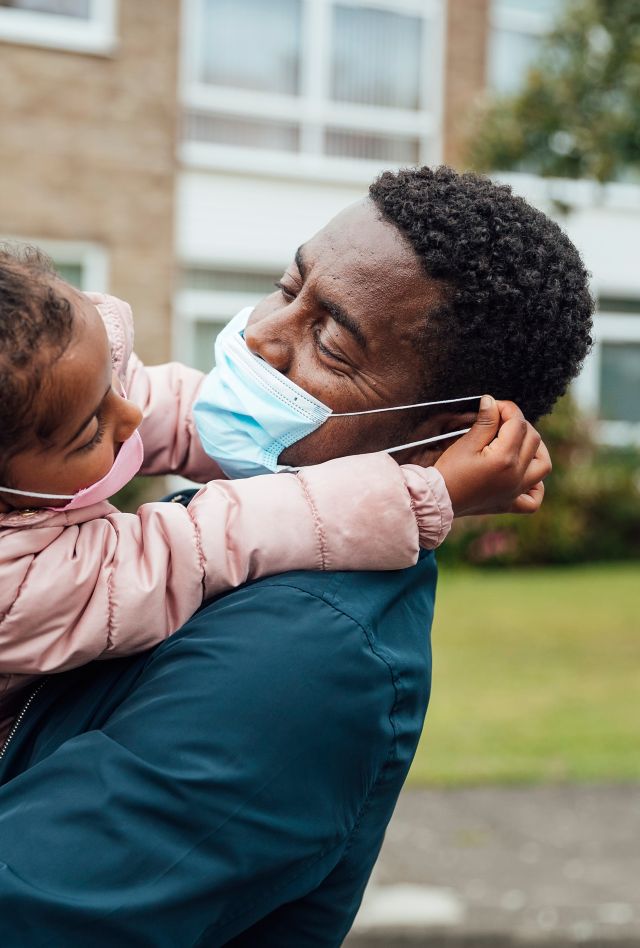Evaluation of the National COVID-19 Resiliency Network

Problem
COVID-19 amplified existing health inequities and gaps in the U.S. healthcare system.
COVID-19 pandemic has disproportionately impacted minoritized racial/ethnic groups, rural populations, immigrant and refugee populations, individuals with intellectual and developmental disabilities, and agricultural and migrant workers. These groups had higher disease burden, hospitalization, and mortality, and initially lacked access to accurate and culturally- and linguistically- appropriate information, resources and health and social services, perpetuating disparities and inequities in health.
Amidst the national public health emergency and its ever evolving clinical and public health knowledge base, there was a need to take stock of the rapid federal, state, and local efforts to mitigate the impact of COVID-19. This included evaluations of coordinated national, multi-sectoral responses across diverse, underserved communities in the U.S.
Solution
A mixed methods evaluation of a diverse coalition of partners looking to advance health equity.
Morehouse School of Medicine established the National COVID-19 Resiliency Network (NCRN), a coalition of 46 strategic and over 300 national, state/territorial/tribal, and community-level organizations. NCRN was funded by the Department of Health and Human Services Office of Minority Health to mitigate the impact of COVID-19 on disproportionately affected populations by disseminating culturally- and linguistically- appropriate information about COVID-19 testing and vaccination and other health care and social services to various priority populations.
As a strategic infrastructure partner, NORC conducted a mixed methods process and outcome evaluation of NCRN to assess the reach, adoption, and implementation of NCRN efforts, and identify best practices and lessons learned. We also assessed the effectiveness and impact of the network based on the degree to which NCRN activities contribute to reductions in population-specific information gaps; enhanced national, STT, and community-level capacity; and changes in behavior.
Result
Evaluation insights to improve response, recovery, and resilience of communities and advance health equity.
NORC conducted various primary data collection activities. We fielded the Collective Community Capacity Survey with 65 NCRN partners to understand the structure of the network and its role in expanding community capacity to achieve health equity. We also interviewed 26 partners to understand their perspectives on the network's progress.
In addition, NORC led a participatory process to field NCRN’s COVID-19 Health Assessment and Mitigation Planning Survey (CHAMPS) of community members. Using AmeriSpeak, we surveyed a nationally representative probability sample of Black, Latinx, Asian, Pacific Islander, rural, immigrant, and refugee populations. We also worked with NCRN partners to survey a non-probability sample of migrant and agricultural workers, justice involved populations, American Indian and Alaska Native peoples, and people with intellectual and developmental disabilities. NORC translated the survey into 10 languages other than English, and over 3,000 individuals in the U.S. completed the survey.
In addition, we established an evaluation advisory board of NCRN partners to inform evaluation activities; developed and implemented an evaluation and monitoring plan and logic model; conducted qualitative analyses of NCRN partner and microgrant recipient monitoring reports; and produced several research briefs, articles, reports, and presentations.
Learn More About the Study
The National COVID-19 Resiliency Network was created to provide individuals and community leaders access to personalized information, support, and resources. Visit the website to learn more.
Related Tags
Project Leads
-
Petry S. Ubri
Senior Research ScientistProject Manager -
Brandon Coffee-Borden
Senior Research ScientistSenior Staff -
Jennifer Satorius
Senior Research ScientistSenior Staff -
Karen Swietek
Senior Health EconomistSenior Staff










